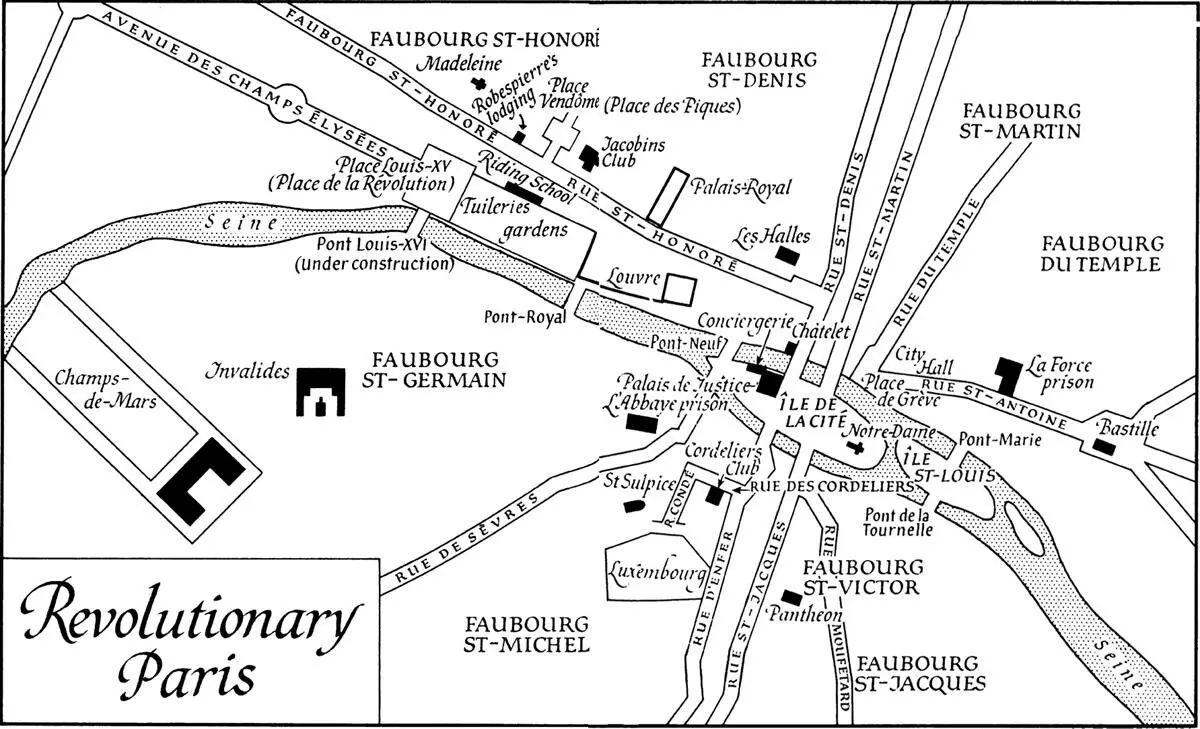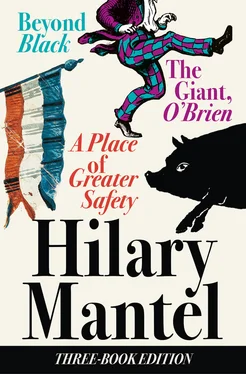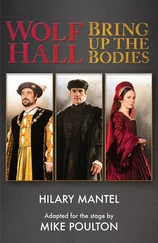Defermon, a deputy, sometime President of the National Convention
Jean-François Lacroix, a moderate deputy: goes ‘on mission’ to Belgium with Danton in 1792 and 1793
David, a painter
Charlotte Corday, an assassin
Claude Dupin, a young bureaucrat who proposes marriage to Louise Gély, Danton’s neighbour
Souberbielle, Robespierre’s doctor
Renaudin, a violin-maker, prone to violence
Father Kéravenen, an outlaw priest
Chauveau-Lagarde, a lawyer: defence council for Marie-Antoinette
Philippe Lebas, a left-wing deputy: later a member of the Committee of General Security, or Police Committee; marries Babette Duplay
Vadier, known as ‘the Inquisitor’, a member of the Police Committee
Implicated in the East India Company fraud:
Chabot, a deputy, ex-Capuchin friar
Julien, a deputy, former Protestant pastor
Proli, secretary to Hérault de Séchelles, and said to be an Austrian spy
Emmanuel Dobruska and Siegmund Gotleb, known as Emmanuel and Junius Frei: speculators
Guzman, a minor politician, Spanish-born
Diedrichsen, a Danish ‘businessman’
Abbé d’Espanac, a crooked army contractor
Basire
Delaunay} deputies
Citizen de Sade, a writer, formerly a marquis
Pierre Philippeaux, a deputy: writes a pamphlet against the government during the Terror
Some members of the Committee of Public Safety:
Saint-André
Barère
Couthon, a paraplegic, a friend of Robespierre
Robert Lindet, a lawyer from Normandy, a friend of Danton
Etienne Panis, a left-wing deputy, a friend of Danton
At the trial of the Dantonists:
Hermann (once of Arras), President of the Revolutionary
Tribunal
Dumas, his deputy
Fouquier-Tinville, now Public Prosecutor
Fleuriot
Liendon} prosecution lawyers
Fabricius Pâris, Clerk of the Court
Laflotte, a prison informer
Henri Sanson, public executioner
Map of Revolutionary Paris

LOUIS XV is named the Well-Beloved. Ten years pass. The same people believe the Well-Beloved takes baths of human blood…Avoiding Paris, ever shut up at Versailles, he finds even there too many people, too much daylight. He wants a shadowy retreat…
In a year of scarcity (they were not uncommon then) he was hunting as usual in the Forest of Sénart. He met a peasant carrying a bier and inquired, ‘Whither he was conveying it?’ ‘To such a place.’ ‘For a man or a woman?’ ‘A man.’ ‘What did he die of?’ ‘Hunger.’
Jules Michelet
Конец ознакомительного фрагмента.
Текст предоставлен ООО «ЛитРес».
Прочитайте эту книгу целиком, купив полную легальную версию на ЛитРес.
Безопасно оплатить книгу можно банковской картой Visa, MasterCard, Maestro, со счета мобильного телефона, с платежного терминала, в салоне МТС или Связной, через PayPal, WebMoney, Яндекс.Деньги, QIWI Кошелек, бонусными картами или другим удобным Вам способом.













